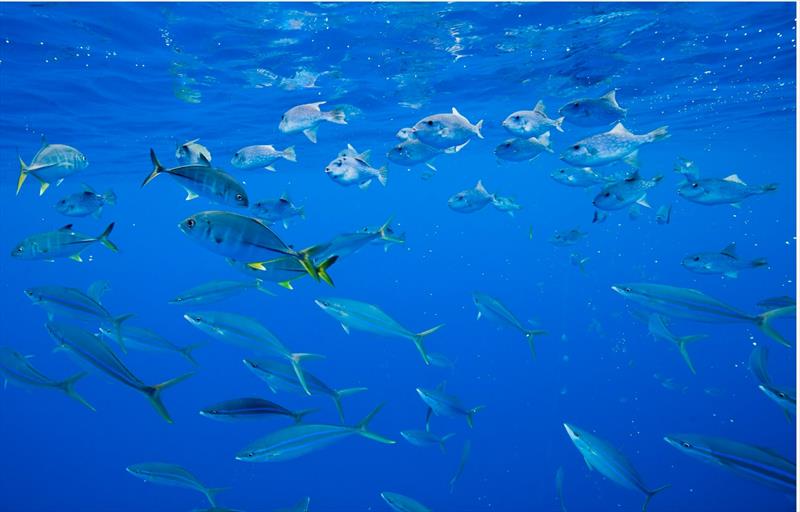
Step forward for science-driven high seas protection in the Oceania region
by High Seas Alliance 10 May 2025 08:02 AEST

Step forward for science-driven high seas protection in the Oceania region © Paul Hilton, Greenpeace
During a week when oceans are in the global spotlight, with the release of David Attenborough's new film 'Ocean', scientists from around the world have convened in Sydney to comprehensively review research on the 'lost volcanic worlds' of the Lord Howe Rise and South Tasman Sea.
The Research Symposium has been organised by the High Seas Alliance and WWF with scientific expertise from the Deep Ocean Stewardship Initiative, supported by the Australian Government. It aims to build a comprehensive picture of the areas to inform conservation decisions, including potentially under the new High Seas Treaty.
The Lord Howe Rise and South Tasman Sea have been identified by global experts as priorities for protection under the new High Seas Treaty* due to their extraordinary biological diversity and unique ecological features.
Located between Australia and New Zealand, the Lord Howe Rise is an immense underwater plateau flanked by seamounts (underwater mountains) that hum with an incredible diversity of marine life, from leatherback turtles to humpback whales, from ancient black corals to Galapagos sharks. Numerous species found in the area are vulnerable, endangered, endemic and/or rare.
The Symposium draws together research undertaken by researchers over recent decades, to build a rich picture of the geology, oceanography and biodiversity of the Lord Howe Rise and South Tasman Sea, as well as threats and opportunities to address those threats. Cultural and ecological knowledge and rights were front and centre throughout the Symposium, shared by First Nations scholars and leaders from across the Blue Pacific (Oceania) region.
On conclusion of the Symposium, the Australian premiere of Sir David Attenborough's new film 'Ocean' will take place in Sydney. Drawing on stories and images from all corners of the world to tell the story of our ocean, there is a strong focus on some of the most precious and delicate places in the Blue Pacific region, including the Great Barrier Reef, Antarctica, Palau and Kiribati.
Together, the film and the Symposium highlight the unique beauty and importance of places like the Lord Howe Rise and the threats they are facing. They will also explore the critical importance and effectiveness of marine protected areas in supporting ocean ecosystems to recover and thrive, which play an important role not only in preserving biodiversity, but also regulating the planet's climate.
"The High Seas Treaty offers the chance for humanity to finally protect biodiversity in the half of the planet that is found in the ocean beyond national waters, which is full of diverse, unique marine life but under increasing threat and tragically under-protected. This science and knowledge symposium will play an important role in ensuring marine protection in Oceania is driven by the most comprehensive scientific and traditional knowledge, and begins an inclusive conversation for implementation of the Treaty, while the Australian Government finalises the ratification process", said Rebecca Hubbard, Director of the High Seas Alliance.
"Protecting 30 per cent of the world's oceans by 2030 is a huge undertaking, but an essential one. Healthy oceans are critical to the overall health of our planet. We're pleased to see Australia taking an important step with this Symposium, and call on the new Australian Government to redouble its efforts on ocean protection as a matter of urgency. This Symposium will help consolidate information on the Lord Howe Rise and South Tasman Sea to enable science-based decision-making and actual conservation measures, which urgently need to be put in place", said Richard Leck, Head of Oceans, WWF-Australia.
"The health of deep ocean ecosystems is critical to the health of oceans worldwide. And yet we don't know nearly enough about them. They are truly the last frontier, and one which the Deep-Ocean Stewardship Initiative is committed to exploring, documenting and understanding. Initiatives like this Research Symposium are critical to advancing knowledge of particular places in order to make science-based decisions on marine protection, and it is so fitting to be doing this work on Deep Day", said Maria Baker, Executive Director at Deep-Ocean Stewardship Initiative.